Opinion
Alausa: Cancellation Of Indigenous Languages In Schools Is An Avoidable Goof

By Olabode Opeseitan
Dr. Tunji Alausa, Nigeria’s Honourable Minister of Education, has shown commendable dedication to education reform. His leadership in foundational literacy and numeracy, and his push for improved teacher training, reflect a commitment to evidence-based governance. But his recent cancellation of Nigeria’s indigenous language policy is a grave misstep culturally, spiritually, and intellectually. It isolates Nigeria from global best practice and risks erasing ancestral wisdom.
A MINISTER’S LEGACY AT THE CROSSROADS
The decision to abolish indigenous language instruction from pre-primary to tertiary levels, based on data suggesting poor exam performance in regions that adopted mother-tongue teaching, may have been well-intentioned. But the conclusion drawn is culturally annihilistic, spiritually defeatist, and intellectually indefensible. It risks defining Dr. Alausa’s legacy not as a reformer, but as the Minister who presided over the cultural extinction of Nigeria’s indigenous languages.
LANGUAGE IS NOT JUST A TOOL, It’s Identity
To subjugate Nigeria’s indigenous languages to English is to pronounce them inferior. What is the intention here? To wipe them off the surface of the earth? Whatever you do not cultivate does not grow. Whatever you don’t teach, you cannot pass on. This decision severs the generational transmission of wisdom, worship, and worldview.
There are moments when I want to praise my God and I must do so in Yoruba. How else can one reach the highest ecclesiastical height than through expressions like “Oba olowo gbogboro ti’n y’omo re lofin,” “Eledumare,” “Oyigi yigi Oluorun,” “Oba arinu r’ode, olumoran okan”? These are not mere words, they are spiritual vessels. Listen to Tope Alabi’s songs and tell me how English can replicate that soul-deep resonance.
TAKE YORUBA, FOR EXAMPLE, A GLOBAL LANGUAGE OF HERITAGE
Yoruba is spoken by over 41 million people in Nigeria and across West Africa. It is studied in Brazil, Cuba, the United States, and the United Kingdom. It is widely spoken in Benin, Togo, and Sierra Leone, and taught in universities around the world. Yoruba is not a relic, it is a living, global language of heritage and worship. And it is just one among many Nigerian languages with global resonance.
GLOBAL LESSONS: Nigeria Is Now an Outlier
Among the top 30 economies in the world, 28 use both indigenous and foreign languages in education. Only two, Australia and the United States, have foreign-dominant models with limited indigenous inclusion. And both are grappling with the consequences: cultural disconnection, language loss, and intergenerational trauma.
Across leading nations, from China to Germany, India to Indonesia, multilingual education is standard practice, with the mother tongue often serving as the foundation for early learning. These countries understand that language is not a barrier to development, it is a bridge to deeper learning, stronger identity, and national cohesion. Nigeria’s new model is not evidence-based, it is evidence-deficient.
AFRICAN PRECEDENT: South Africa’s Bold Model
South Africa, with 11 official languages, has shown that indigenous language inclusion is not a liability—it’s a national asset. Its curriculum prioritizes mother-tongue instruction in early education, recognizing that children learn best in the language they speak at home. Nigeria should not lag behind its continental peers in affirming linguistic dignity.
UNESCO and global education bodies consistently affirm that multilingual education improves literacy, cognitive development, and emotional well-being. Children learn better when taught in the language they understand best—not through a monolingual imposition that relegates indigenous languages to the margins of irrelevance.
THE CURRENCY EXCHANGE OF COMPREHENSION
Teaching in English alone is like converting Chinese yuan to dollars, then to naira—you lose value at every step. Pupils first internalize concepts in their indigenous language, then translate to English. Why not teach them directly in the language they think in?
A PRACTICAL PATH FORWARD
Nigeria does not need 500 languages in classrooms. A regional model with 4 to 6 primary indigenous languages—Hausa in the North, Yoruba, Igbo, Ibibio in the South—can work. This is not about emotion; it is about logic, legacy, and learning.
A CALL TO PRESIDENT TINUBU
Mr. President, you have demonstrated a willingness to listen and respond to public sentiment. When Nigerians raised concerns about the economic strain of new levies, you swiftly suspended the 5% fuel tax and the 15% fuel and diesel importation levy. In matters of national appointments—though made under your authority—you have shown responsiveness by reviewing and adjusting decisions when credible concerns were raised. This is such a moment.
The cancellation of indigenous language instruction is not just a policy misstep—it is a rupture in the soul of the nation. It cannot be scientifically, psychologically, or empirically justified. The evidence globally and locally supports multilingual education, not monolingual imposition.
Let us not be the generation that buried our languages. Let us be the one that revived them.
Honourable Minister, you still have time to rewrite this chapter. Let it not be said that you were the one who killed Nigeria’s indigenous languages. Let it be said that you were the one who saved them.
#Nigeria
#primaryschool
#Indegenouslanguage
-
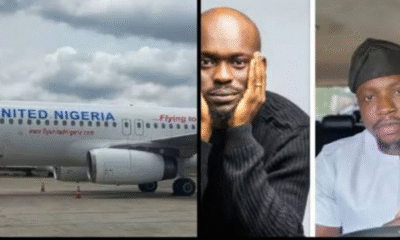
 Metro17 hours ago
Metro17 hours agoApologies from VDM and Mr Jollof Won’t Stop Ongoing Probe – Airline Insists
-
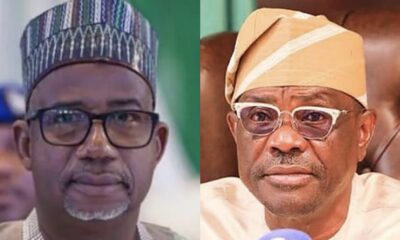
 Politics17 hours ago
Politics17 hours agoArrogant Wike polluting Nigeria’s political space, destroying democracy – Bala Mohammed
-
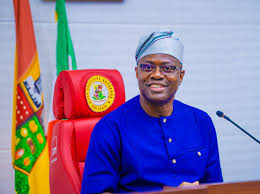
 Politics17 hours ago
Politics17 hours agoWhy I parted ways with Wike, by Makinde
-
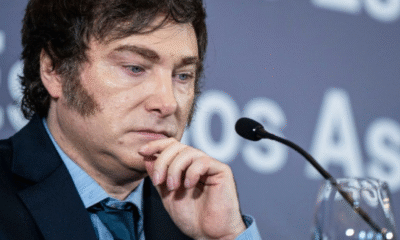
 Business14 hours ago
Business14 hours agoArgentina President Milei Embroiled In Alleged Crypto Fraud
-

 Business16 hours ago
Business16 hours agoInternet banking overtakes ATM, PoS as transaction values surge to ₦542.98trn
-

 News17 hours ago
News17 hours agoHealth Workers’ Strike Paralyses Hospitals
-

 Business14 hours ago
Business14 hours agoSpectranet, Starlink, FibreOne capture 65% of customers as Nigeria’s ISP market shrinks
-
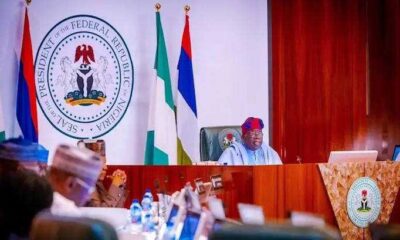
 News17 hours ago
News17 hours agoTinubu sends Shettima to Kebbi, assures rescue of abducted schoolgirls
